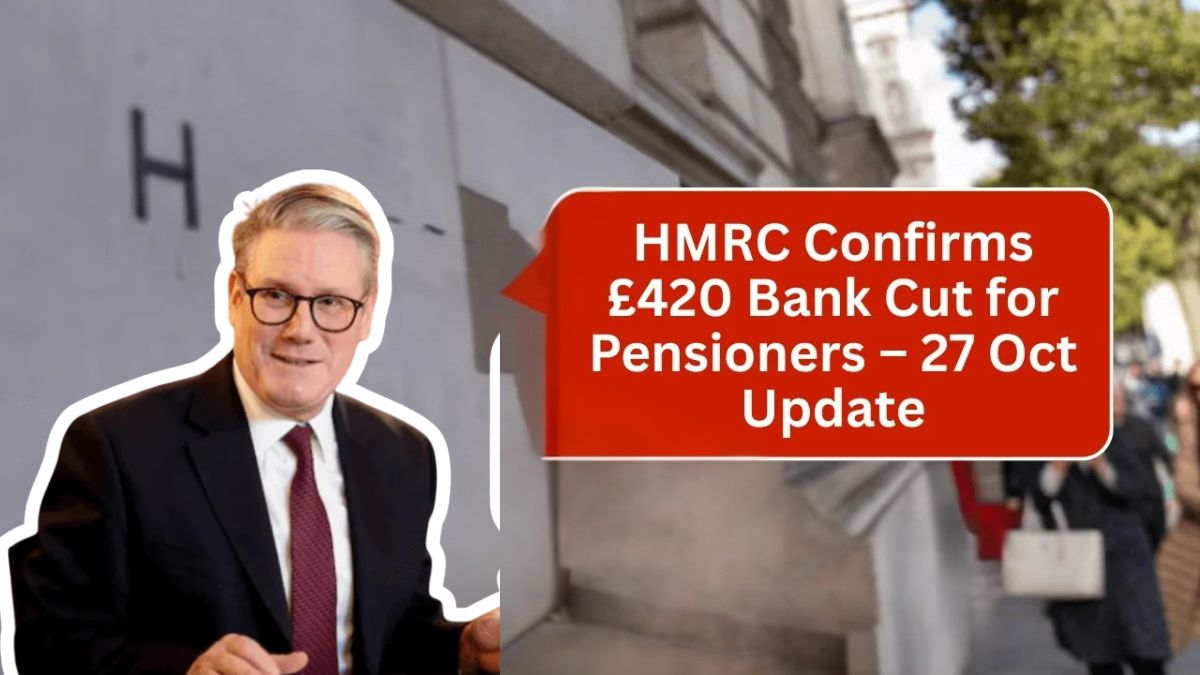The UK government has officially confirmed a substantial increase in the State Pension for 2025, providing a much-needed income boost for millions of retirees. This rise, one of the most generous in recent years, comes as part of the triple lock guarantee — the long-standing policy designed to ensure pensions keep up with rising living costs.
With persistent inflation, high energy bills, and soaring food prices continuing to squeeze household budgets, this increase offers crucial relief. However, while many pensioners will benefit, the exact amount you receive will depend on your National Insurance record and which pension system you fall under — the basic or the new State Pension.
Why the State Pension Is Increasing in 2025

The triple lock guarantee ensures that the State Pension rises each year by whichever of the following three measures is highest:
- Inflation (as measured by the Consumer Price Index – CPI).
- Average earnings growth across the UK.
- A minimum 2.5% increase.
For 2025, record wage growth has outpaced both inflation and the 2.5% floor, triggering one of the largest pension increases in history. The rise demonstrates the government’s continued commitment to maintaining retirees’ purchasing power amid ongoing cost-of-living pressures.
Quick Summary – UK State Pension Increase 2025
| Category | Details |
|---|---|
| Authority | Department for Work and Pensions (DWP) |
| Increase Mechanism | Triple Lock Guarantee (highest of inflation, earnings, or 2.5%) |
| New Full State Pension | Over £221 per week (~£11,500 per year) |
| Basic State Pension | Nearly £170 per week (~£8,840 per year) |
| Eligibility Basis | National Insurance contributions |
| Minimum NI Years Required | 10 years for any pension, 35 years for full pension |
| Payment Frequency | Every 4 weeks (paid directly to bank accounts) |
| Implementation Date | From October 2025 |
| Extra Support | Pension Credit for low-income retirees |
| Official Site | www.gov.uk |
How Much Will the State Pension Rise in 2025?
The Department for Work and Pensions (DWP) has confirmed two main pension categories affected by the increase:
- New State Pension: Rising to over £221 per week, equivalent to more than £11,500 annually.
- Basic State Pension: Increasing to nearly £170 per week, or roughly £8,840 annually.
This rise ensures pensioners receive a meaningful uplift that reflects both the cost of living and rising average wages, helping them maintain financial stability in retirement.
Eligibility Criteria: Who Qualifies for the 2025 Increase
Your eligibility for the new rates depends entirely on your National Insurance (NI) contribution record.
- Full New State Pension: Requires 35 qualifying years of NI contributions or credits.
- Partial Pension: For those with between 10 and 34 years of contributions.
- Minimum Requirement: You must have at least 10 years of contributions to receive any State Pension.
If you reached State Pension age before April 2016, you remain under the basic State Pension system, not the new one introduced later. Those reaching pension age after that date automatically qualify for the new State Pension framework.
Pension Credit – Extra Help for Low-Income Pensioners
While the 2025 rise benefits millions, not every pensioner will automatically see a substantial improvement. For retirees on low or fixed incomes, the Pension Credit continues to play a crucial role by topping up payments and unlocking additional benefits.
Key Details:
- Ensures a minimum income of £218.15 per week for single pensioners.
- Guarantees £332.95 per week for couples.
- Acts as a gateway to extra financial help, including:
- Council Tax Reduction
- Help with housing costs
- Free TV licence for those aged 75+
- Cold Weather and Winter Fuel Payments
Unfortunately, many eligible pensioners still fail to claim Pension Credit. According to official DWP figures, around 850,000 households miss out each year. Checking eligibility and applying could unlock thousands of pounds in additional support.
When Will the Pension Increase Take Effect?
The new pension rates will officially take effect from October 2025.
- Payments are issued every four weeks directly into recipients’ bank accounts.
- The exact payment date depends on the last two digits of your National Insurance number.
- DWP staggers payments to ensure smooth processing and avoid delays.
If you’re already receiving your pension, you don’t need to take any action — your payments will automatically adjust to reflect the new rates.
Why the 2025 Pension Increase Matters
For millions of retirees, this year’s rise isn’t just about numbers — it’s about security and dignity. The 2025 increase is particularly important because it:
- Offsets inflation and helps with continued cost-of-living pressures.
- Reduces reliance on personal savings for daily essentials.
- Provides reassurance during a period of high energy, food, and housing costs.
- Ensures parity between older pensioners and newer claimants through the triple lock mechanism.
With many older adults still struggling with increased bills, this rise represents a much-needed cushion heading into the colder months.
How to Check Your State Pension Forecast
If you’re unsure how much you’ll receive under the new rates, the government offers tools to help you estimate your entitlement:
- Use the official State Pension Forecast Tool at www.gov.uk/check-state-pension.
- Contact the Future Pension Centre for personalised assistance or if you’re planning to retire soon.
- Review your National Insurance record to ensure there are no gaps.
- Consider voluntary NI contributions to fill missing years and qualify for the full pension amount.
Additional Support Available to Pensioners
Beyond the State Pension and Pension Credit, several other schemes remain available for retirees:
- Winter Fuel Payment: Annual support to cover heating costs during winter.
- Warm Home Discount: One-off credit on energy bills for eligible pensioners.
- Cold Weather Payment: Issued automatically during severe temperature drops.
- Council Tax Reduction: Offered through local councils to ease housing-related expenses.
Together, these measures aim to create a comprehensive safety net for older adults navigating financial pressures in 2025.
Government’s Position on the Triple Lock
The government has reaffirmed its commitment to maintaining the triple lock policy despite concerns about long-term affordability. Prime Minister Keir Starmer and the DWP have described it as a “core protection” for pensioners that safeguards living standards and promotes intergenerational fairness.
While economists have questioned whether the triple lock can remain sustainable given wage inflation, officials maintain that retirees deserve guaranteed stability after decades of contribution to the economy.
How to Maximise Your Pension Income
If you’re planning for retirement or already claiming your pension, here are practical steps to make the most of your income:
- Ensure all eligible years of NI contributions are recorded.
- Check for Pension Credit entitlement — even small savings or modest pensions don’t automatically disqualify you.
- Apply for additional benefits (like Council Tax or Housing Support) if your income falls below thresholds.
- Seek free financial advice from organisations such as Age UK, Citizens Advice, or MoneyHelper.
Looking Ahead: A Stable Foundation for Retirees
The 2025 State Pension increase underscores the UK government’s ongoing effort to protect pensioners’ financial wellbeing amid persistent economic uncertainty. With new weekly rates exceeding £221 and extra support through Pension Credit, this policy offers reassurance to millions who depend on their pension as their main source of income.
For many older Britons, this uplift is more than a policy decision — it’s a promise of security, dignity, and stability in later life.
Frequently Asked Questions (FAQs)
Q1. When does the 2025 State Pension increase take effect?
The new rates start from October 2025, with payments adjusted automatically by the DWP.
Q2. How much will the new State Pension be in 2025?
Over £221 per week for those on the new State Pension, and nearly £170 per week for those on the basic scheme.
Q3. Who qualifies for the full new State Pension?
You must have 35 years of National Insurance contributions. A minimum of 10 years is required for any pension entitlement.
Q4. How can I check how much I’ll receive?
Use the State Pension Forecast Tool on GOV.UK or contact the Future Pension Centre.
Q5. What if I’m on a low income?
Apply for Pension Credit, which tops up your weekly income and grants access to other benefits like housing and council tax support.














